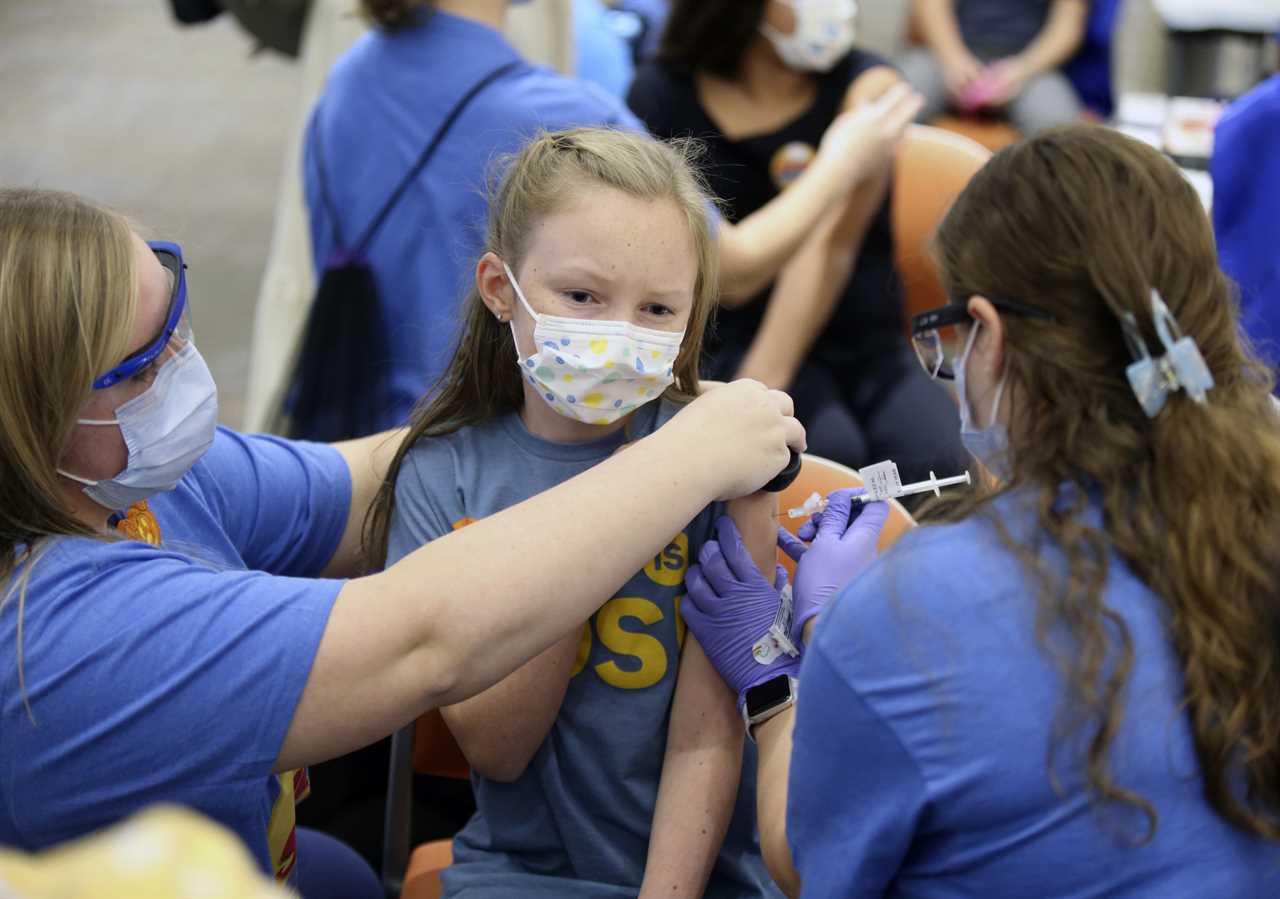
This is the second story of a five-part series","_id":"0000018a-a8cc-dee9-adca-ebfea87c0000","_type":"02ec1f82-5e56-3b8c-af6e-6fc7c8772266"}">a five-part series diving into the rise of the anti-vaccine political movement.
The Covid-19 pandemic eroded trust in science. The 2024 election, public health officials fear, may make it worse.
A handful of presidential candidates from both parties are leaning into a growing movement that marries traditional vaccine skepticism with a broader distrust of big institutions — be they the government, the pharmaceutical industry or the scientific establishment.
It’s a movement organized in only the loosest of terms. It’s anti-vaccine and anti-science. It’s pro-medical freedom and pro-alternative medicine. But growth in the movement’s ranks has many in and out of government fearful that this campaign cycle will accelerate its spread, consolidate its strength and cement its place in the political milieu.
“It’s going to get worse before it gets better,” said Dr. Jerome Adams, U.S. surgeon general during the Trump administration. “Many of us in public health are deeply concerned that distrust in government and health entities, and a political campaign in which candidates are openly and vigorously arguing that people should ignore the advice of health experts, could have detrimental impacts for years to come — no matter who wins."
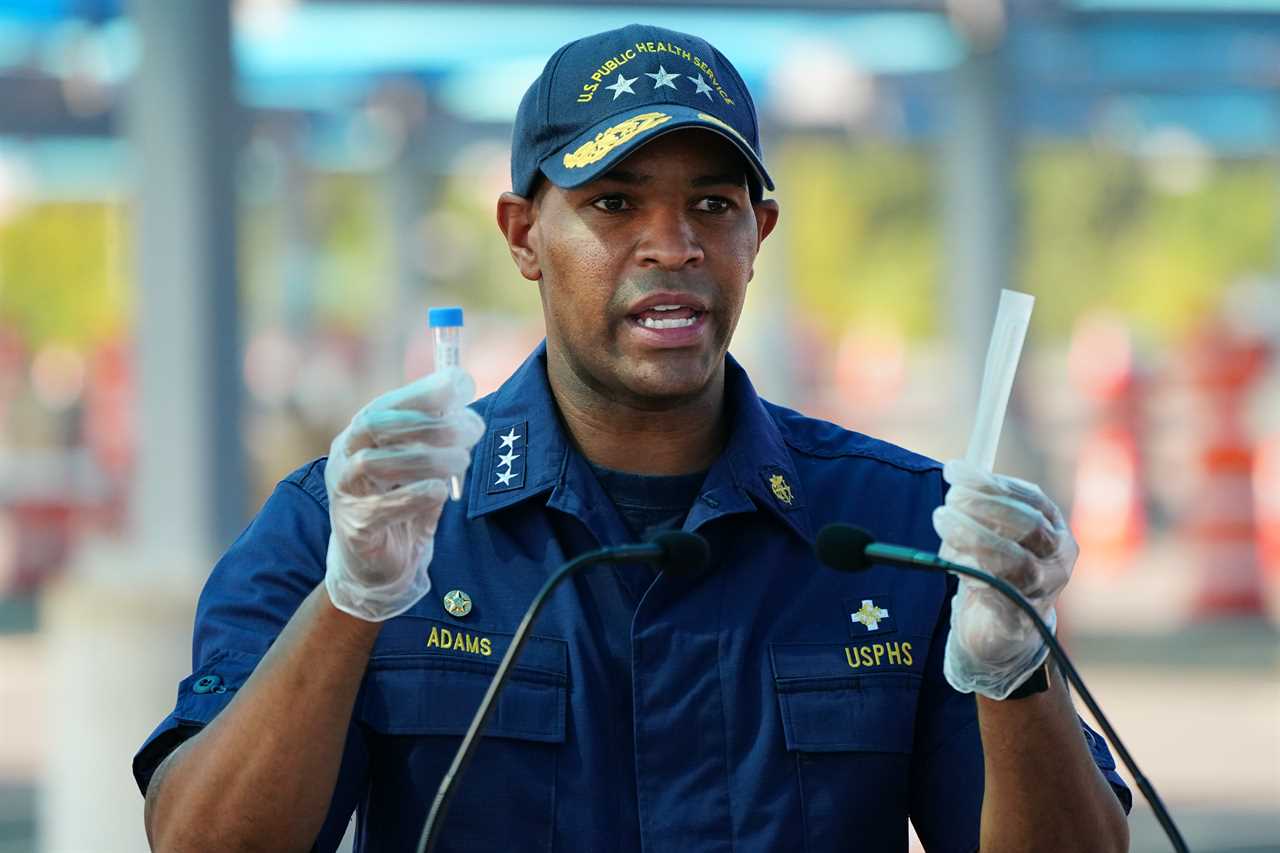
Former President Donald Trump's administration marshaled unprecedented federal resources to develop and promote a Covid vaccine in record time. But within a few weeks of its arrival, lingering resentment over lockdowns and mistrust of government led to a widespread backlash, particularly among conservatives, that persists almost three years later. Nearly four in 10 Republicans say they will “definitely” or “probably” get the new vaccine, according to polling conducted by Morning Consult and POLITICO, while nearly eight in 10 Democrats expect to seek out the updated shot.
That skepticism is bleeding over into other vaccines, like those that prevent measles, mumps and rubella. Dr. Umair Shah, Washington state’s secretary of health, said it may even take the death of an influential figure to a vaccine-preventable disease to shock the public back to wider acceptance of immunizations.
“I’m really concerned, and a lot of people in public health and health care are very concerned, that this is the beginning of a really rough and tough time,” Shah said. “Unfortunately, people are going to get sick. We’re going to lose lives.”
For decades, being openly skeptical of vaccines made one a pariah in all but the smallest of political circles. Both parties generally accepted that modern science had made essential breakthroughs in health care. To cast doubt on them placed you on the fringe. But public health officials fear those days are increasingly numbered.
Robert F. Kennedy Jr., who notched 15 percent support in a Harvard-Harris poll of the Democratic presidential primary field earlier this month, is running on his anti-vaccine bona fides. Florida Gov. Ron DeSantis, a Republican, is campaigning on his work to promote “medical freedom” and has said he would put Kennedy on a task force to investigate government overreach in medicine if elected president. Vivek Ramaswamy, a biotech entrepreneur also running for the Republican nomination, has touted his plans to “expose and ultimately gut” the FDA and floated Kennedy as a running mate.
While these candidates are trailing in the polls, their followings are certain to outlast the campaign. Lingering resentment over pandemic restrictions is fueling further skepticism around public health, potentially leading to even lower vaccination rates, wider spread of disease and an inability to address future pandemics.
“Hundreds of thousands of Americans have died in this pandemic because of the bad information about vaccines and treatments,” said Dr. Ashish Jha, dean of the Brown School of Public Health and former White House Covid-19 response coordinator under the Biden administration. “I certainly am worried about what happens over the next three to five years.”
The data show the vast majority of Americans still trust science, listen to doctors and vaccinate their children. But the growing number of those who don’t threatens to undo generations of work combatting deadly and debilitating diseases that haven’t widely circulated for decades.
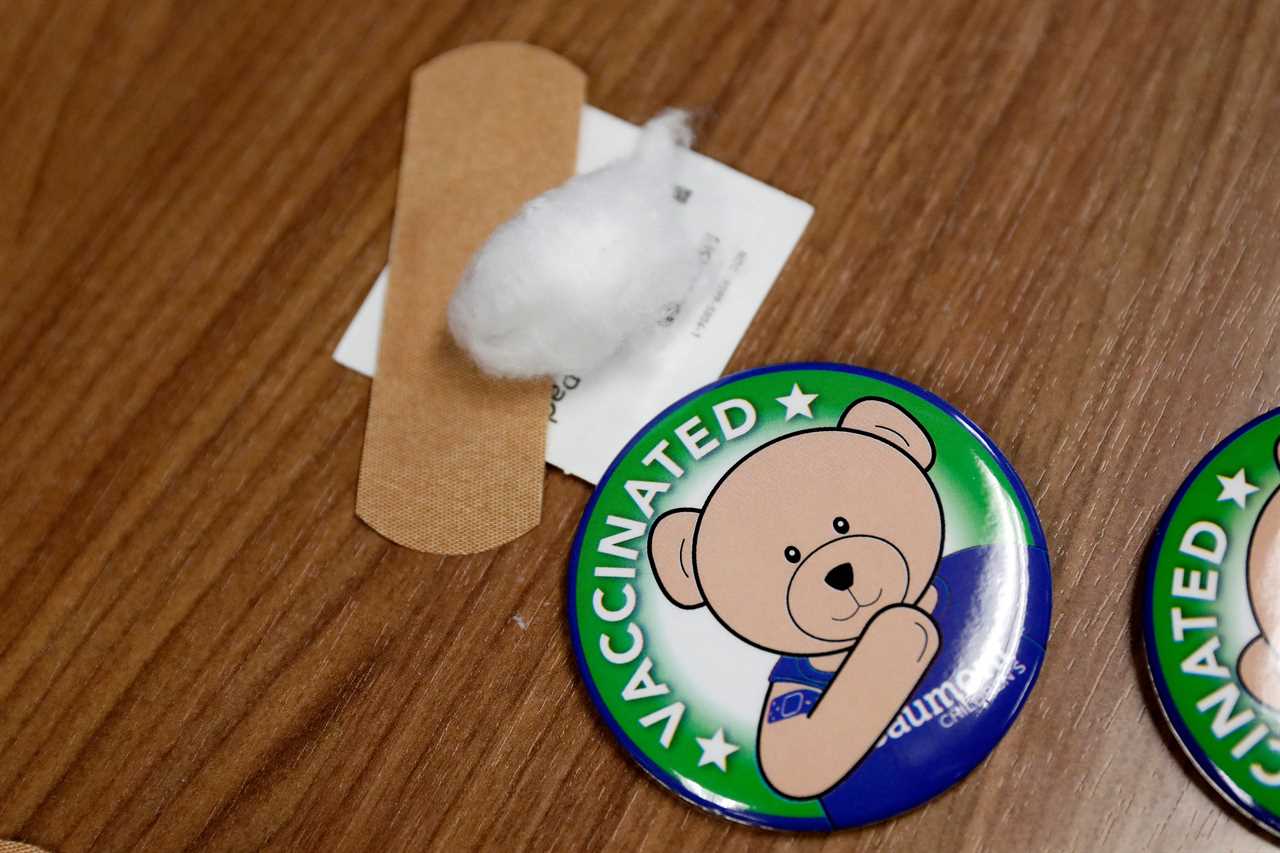
Resistance to the Covid-19 vaccine has already spilled over to routine childhood immunizations. Data released by the Centers for Disease Control and Prevention earlier this year show that vaccination rates for kindergarteners dropped for the second consecutive year.
The skipped shots protect against a wide array of diseases including measles, mumps, rubella, diphtheria, tetanus, pertussis, poliovirus and varicella. Together, the CDC estimates childhood vaccines prevent 4 million deaths worldwide every year.
Declining vaccination rates mean these diseases could start to circulate more widely and, with them, vaccine-preventable deaths. In 2019, there were more than 1,200 cases of measles across 31 states, the largest outbreak in the U.S. since 1992.
More recently, an Ohio outbreak that began last November sickened 85 children between the ages of 6 months and 15 years. None of the children were fully vaccinated, and nearly half were hospitalized.
Health officials in Kentucky and New York have recently identified whooping cough cases. And in New York, a young adult was diagnosed with paralytic polio last fall, and wastewater testing confirmed sustained community transmission of the virus.
“What I worry about is are we going to see the reemergence of diseases we haven’t seen in a long time?” Jha said. “I look at this and I think, ‘I can’t believe we’re talking about polio in 2023.’”
A recent study from the Pew Research Center found that parents with children under the age of 18 were less likely to believe the benefits of the measles, mumps and rubella vaccine outweighed the risks and that the shots had high preventative health benefits. They were more likely to believe in a greater risk of side effects than their counterparts without children. Mothers were significantly more worried about the risks than fathers.
And trust in science is the lowest it has been in years. Only 39 percent of Americans reported a “great deal” of confidence in the scientific community in 2022, down 9 percent from the previous year after remaining steady for the last two decades, according to the Associated Press-NORC Center for Public Affairs Research.
“I wish I was more optimistic about this,” said Rupali Limaye, deputy director of the International Vaccine Access Center at the Johns Hopkins Bloomberg School of Public Health. “The way that this has been messaged is, ‘If you believe in science, and if you believe in all these things that could infringe on my rights, you’re woke.’”
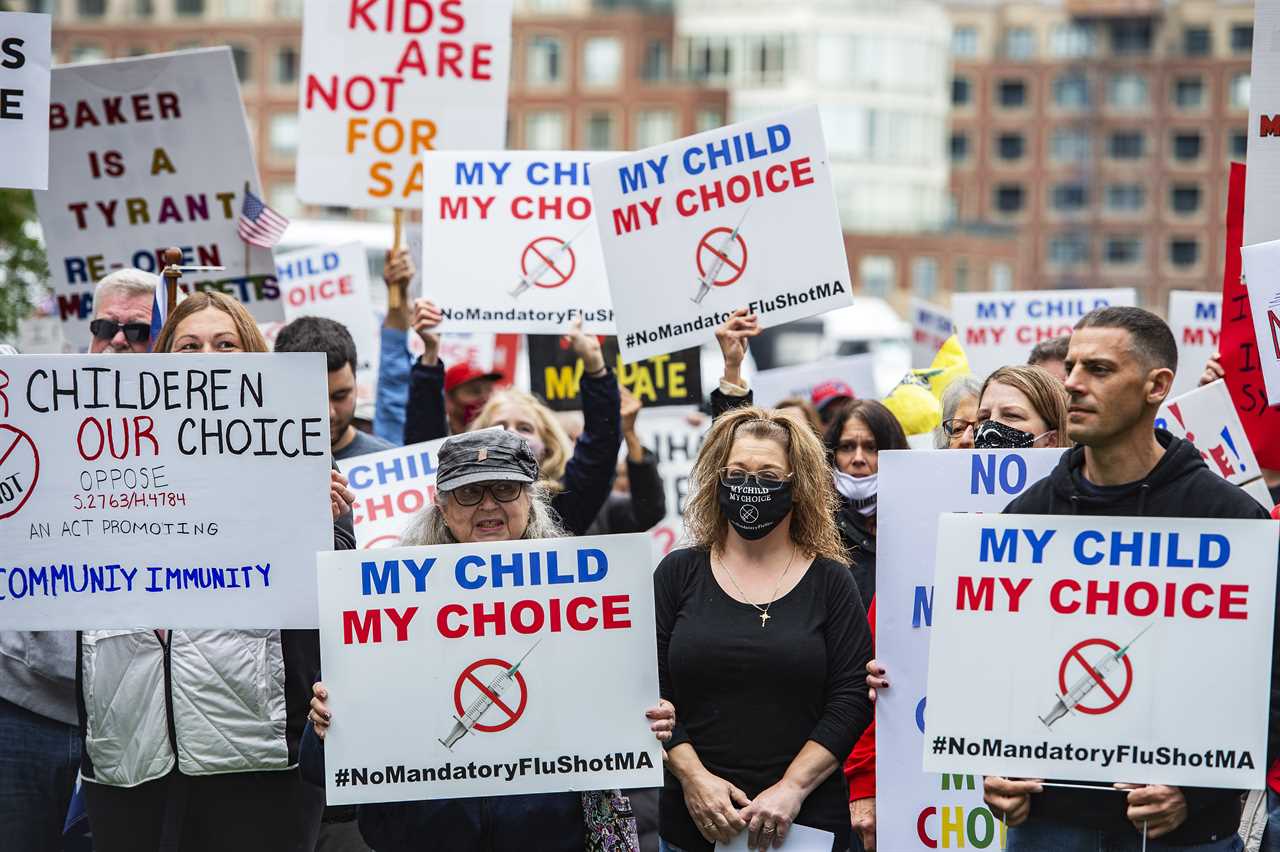
The problem is clear to public health experts. The solutions are less so, particularly because those best equipped to combat health-related misinformation — doctors and scientists — are the very people the skeptics are least inclined to trust. It’s a quandary especially for those in government, who want to act but understand their involvement could deepen the mistrust they’re trying to combat.
“I may be a trusted messenger for, hopefully, a large segment of the population,” said Dr. Dean Sidelinger, Oregon’s state health officer. “I am not the trusted messenger for everyone.”
In lieu of being out front on the issue, public health officials have been turning to the community leaders who helped them spread the word about the Covid-19 vaccine. That includes leaning on respected conservative officials and pastors to be their ambassadors. They’re looking to expand peer-based education, such as training parents and teachers to spread the word on public health. And they want to improve scientific literacy in the U.S. as a whole.
While the anti-vaccine movement has historically found a home among both libertarians and the far-left, recent data is clear that mistrust in vaccines and science in general is significantly higher among Republicans than Democrats. The AP-NORC data show that 22 percent of Republicans have a great deal of trust in the scientific community compared with 53 percent of Democrats.
But Adams noted the role Kennedy, a Democrat, is having in the discussion — and said the left-versus-right discussion is unhelpful.
“The partisan framing drives many of the very people we're trying to engage right into the arms of nefarious actors,” Adams said.
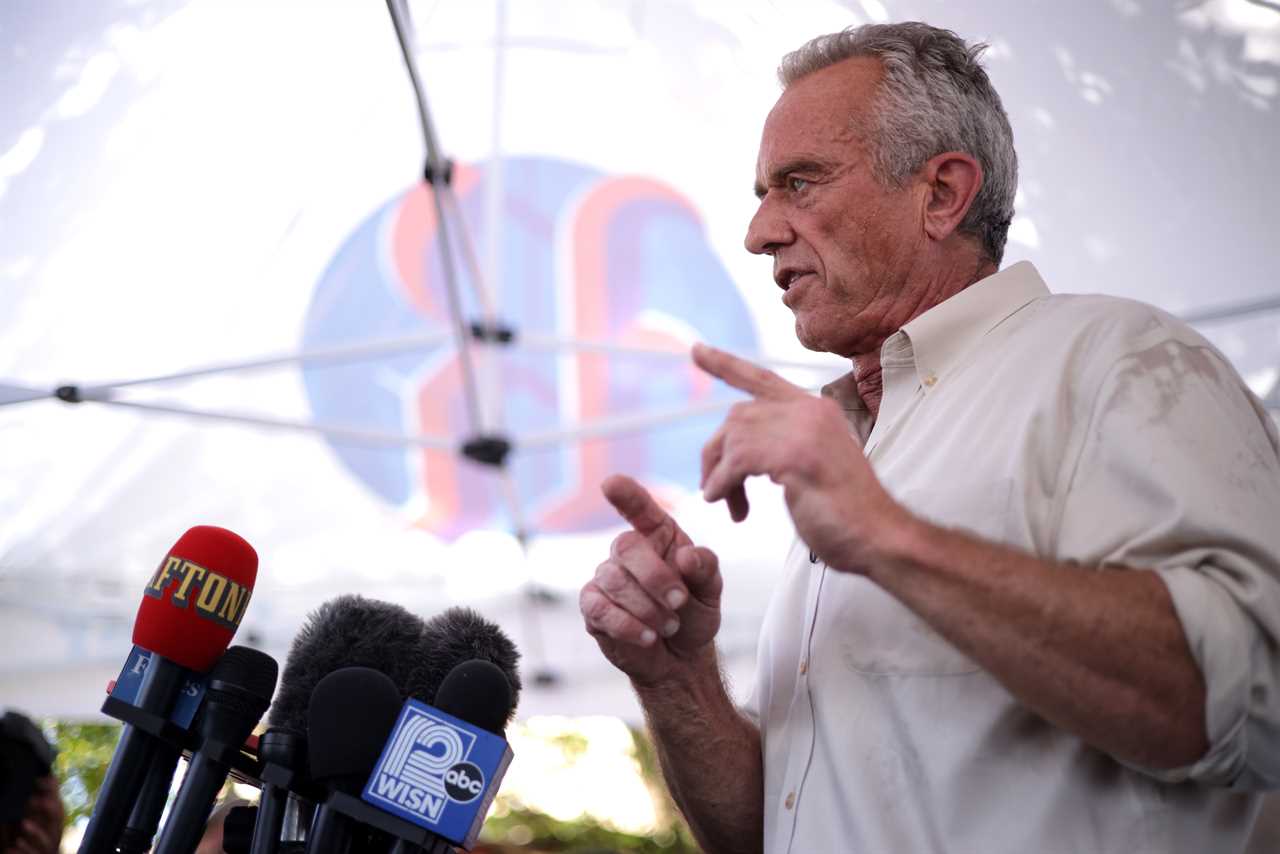
Kennedy’s campaign, in an email, blamed the involvement of business in science and medicine for the growing levels of mistrust and said it was the media, not Kennedy, making vaccines a campaign issue.
“The reason the public has lost trust in science and medicine is that all too often, their trust has been betrayed due to corporate influence over academic research and government agencies,” the campaign said.
Officials worry that social media may spread rhetoric from the most vocal and the most skeptical, resulting in other Americans delaying or skipping vaccinations, not because they’re opposed, but because they don’t know who to trust. A recent KFF poll found that 96 percent of U.S. adults had heard at least one of 10 specific pieces of health-related misinformation, and that while fewer than one in five said the claims were “definitely true,” anywhere from half to three-quarters of people were uncertain whether the claims were true or false.
“It makes it really hard for everyday Americans to know, ‘What should I do for my family? What do I do for my kids? Do I get vaccinated? Do I not get vaccinated?’” Shah said. “People start to wonder, and if you have enough people wonder, what happens is they may hesitate.”
----------------------------------------
By: Megan Messerly
Title: ‘We’re going to lose lives’: Health experts decry rise of vaccine skepticism
Sourced From: www.politico.com/news/2023/09/21/covid-vaccines-science-2024-election-00116520
Published Date: Thu, 21 Sep 2023 04:00:00 EST
Did you miss our previous article...
https://consumernewsnetwork.com/politics-us/top-gop-senator-joins-forces-with-key-dem-on-ai-bill






